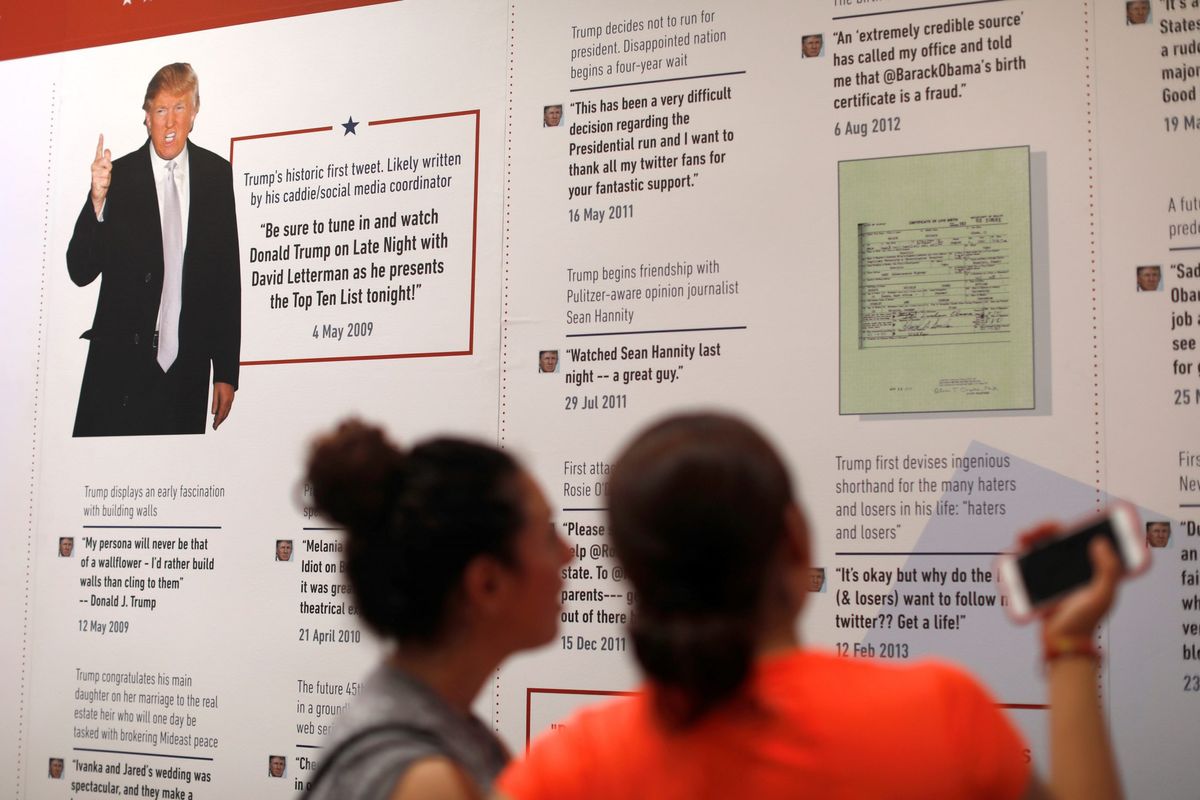The international reaction to Trump’s Twitter ban, explained

A few minutes every morning is all you need.
Stay up to date on the world's Headlines and Human Stories. It's fun, it's factual, it's fluff-free.
The move by Twitter has received worldwide attention with some world leaders heavily critical of it and others supporting Twitter’s right to enforce such measures.
In a controversial move two days after the violent storming of the United States Capitol building, Twitter permanently banned President Donald Trump from its platform.
The action to ban the president came after warnings from Twitter that further violations of its rules and policies would result in further penalization. On Friday, January 8, Trump posted two tweets, one of them insinuating that the people who voted for him had been disrespected and another stating that he would not be attending the inauguration of President-elect Joe Biden.
Immediately following these tweets, Twitter banned the account permanently, saying in a statement, “these two tweets must be read in the context of broader events in the country and the ways in which the President’s statements can be mobilized by different audiences, including to incite violence.”
Several other companies, including Facebook, Instagram, Snapchat, Reddit and others, have followed in Twitter’s footsteps and enacted a variety of disciplinary actions on the president’s accounts.
The move by Twitter has received worldwide attention with some world leaders heavily critical of it and others supporting Twitter’s right to enforce such measures.
Germany
Steffen Seibert, spokesperson for German Chancellor Angela Merkel, called the ban “problematic” in a statement on Monday.
“This fundamental right can be intervened in,” said Seibert, “but according to the law and within the framework defined by legislators, not according to a decision by the management of social media platforms.” Seibert went on to say that “Seen from this angle, the chancellor considers it problematic that the accounts of the US president have now been permanently blocked.”
“The right to freedom of opinion is of fundamental importance. Given that, the chancellor considers it problematic that the president’s accounts have been permanently suspended.”
Seibert stated that Twitter’s move to flag inaccurate or misleading information was correct, but that banning the president altogether was a step in the wrong direction, adding that governments, not private companies, should be the ones making decisions regarding the limits of free speech.
Mexico
Mexican President Andres Manuel Lopez Obrador agreed with the German chancellor on the subject, calling censorship by private companies a “bad sign.”
“I don’t like anybody being censored or taking away from the right to post a message on Twitter or Facebook. I don’t agree with that, I don’t accept that,” he said in a news conference the day of the ban. “A court of censorship like the inquisition to manage public opinion: this is really serious.”
United Kingdom
On Wednesday, British Prime Minister Boris Johnson made a statement during a session with senior members of parliament, during which committee chairman Tom Tugendhat asked the prime minister whether he was “comfortable that a US company controls how you communicate with your electorate.”
Johnson, while not directly discussing the Trump Twitter ban, said that “there’s a real debate now to be had about the status of the big internet companies and whether they should be identified as mere platforms or as publishers,” going on to say that “when you start editorializing then you’re in a different world.”
“It’s time we had a frank conversation about the boundaries that we want to be set,” he added, and “the role of these companies in what they choose to publish and what they choose not to publish.”
China
Mei Xinyu, a researcher at China’s ministry of commerce, stated that the threat posed by big tech companies to countries is significant and worthy of attention.
“The behavior of these social media platforms has raised panic in other countries,” said Mai. “Tech companies in China have to make a positive impact. We won’t restrain ourselves economically. But in terms of political risks, we can’t allow this to happen in China.
This sentiment was echoed by a number of posts by individual Chinese citizens, as reported by The New York Times.
“A country as big as the United States can’t tolerate Trump’s mouth,” read a comment on the popular social media platform Weibo. Another comment put things a bit more bleakly: “U.S. democracy has died.”
Twitter chief executive officer Jack Dorsey responded to the international criticism by saying that the action taken by his company “sets a precedent I feel is dangerous: the power an individual or corporation has over a part of the global public conversation.”
He also defended Twitter’s decision, tweeting that “Offline harm as a result of online speech is demonstrably real, and what drives our policy and enforcement above all.”
Twitter had previously recognized its role in not banning the president for tweets that would have other accounts banned. The company had argued previously that Trump was exempt from the rules because his tweets were both newsworthy and coming from a world leader.
This decision, however, came in a moment Dorsey felt was his job to “disarm as much as we can,” saying, “A company making a business decision to moderate itself is different from a government removing access, yet can feel much the same.”
Have a tip or story? Get in touch with our reporters at tips@themilsource.com




Comments ()